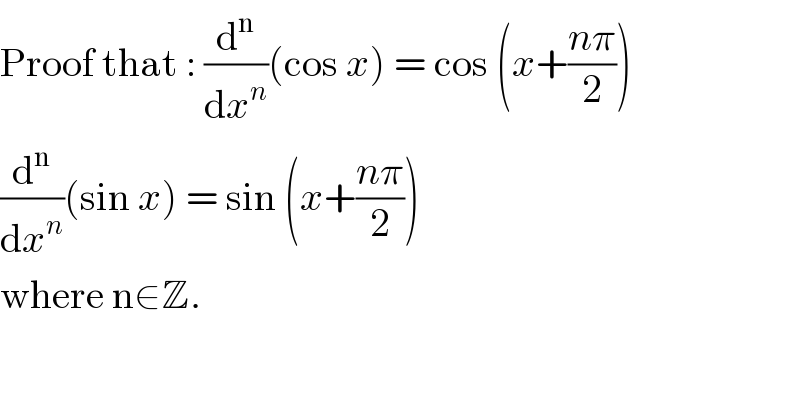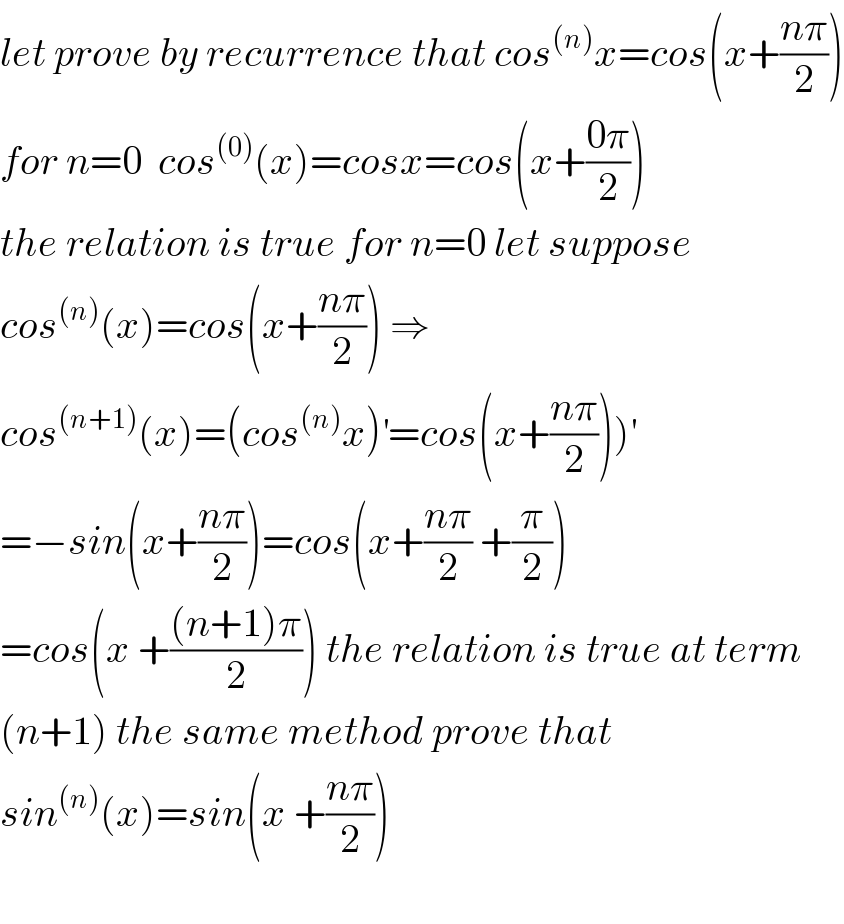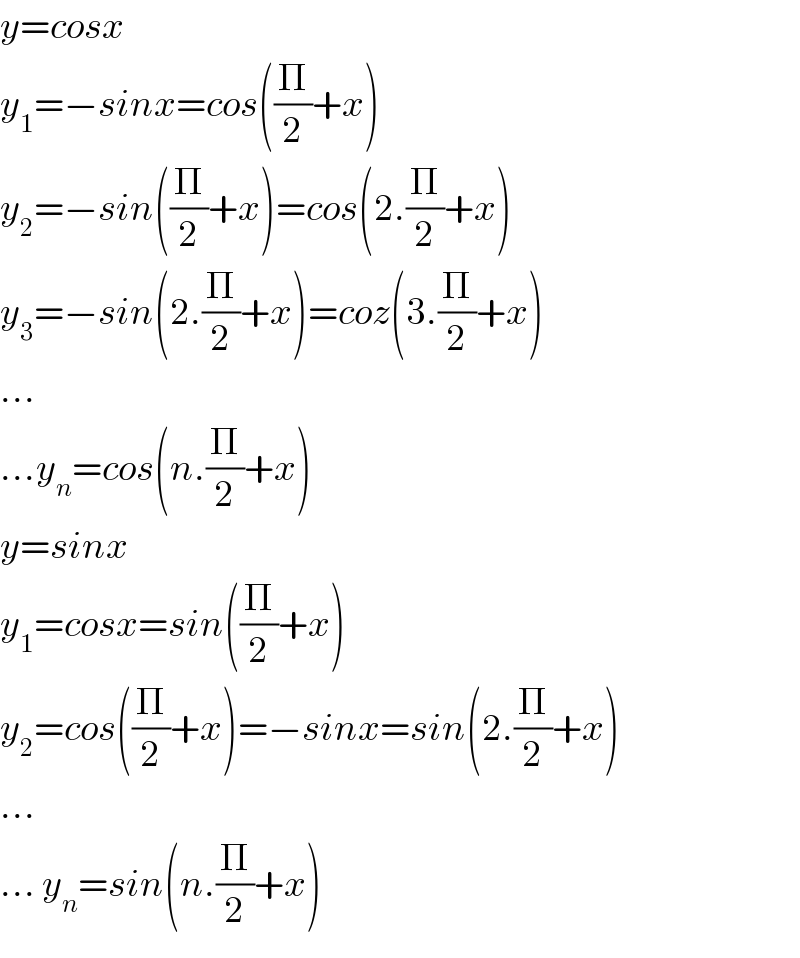
Question and Answers Forum
Question Number 41151 by rahul 19 last updated on 02/Aug/18

Commented by prof Abdo imad last updated on 02/Aug/18

Commented by rahul 19 last updated on 03/Aug/18
thanks prof Abdo ����
Answered by tanmay.chaudhury50@gmail.com last updated on 02/Aug/18

Commented by rahul 19 last updated on 02/Aug/18
thanks sir ����
